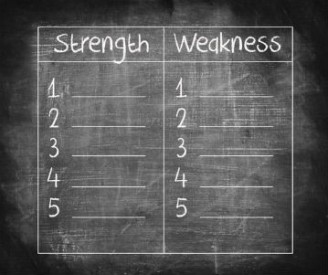You must have played the game of chess or risk once in a while when you were young. What is it that’s common in these games? These are strategic games that push you to think on your feet and help you examine your strengths and limitations. They also assist us in predicting and using foresight to assess and evaluate an opponent’s potential future plays in order to win the game. We use a strategy game as an example since an interview is similar to a strategy game in that you must study and forecast questions that may be asked by the interviewer (s).
A good interviewer will tell you that every successful candidate should come prepared within an interview. The candidate should have a strategy in mind and should be witty enough to quickly think on his feet and come up with straight answers to rather tricky questions that may be thrown to him/her during the course of an interview. Since all hiring managers have a common goal in mind: to hire the best candidate for the position. Thus, in order to achieve this, they use a process of evaluating and eliminating people with carefully selected questions.
How to Explain Your Strengths
Although one way to handle an interview is by memorizing well prepared standard answers to such questions, our experience tells us that such a method may not be applicable when you are applying for positions of executive level and higher. As parroting does not actually reveal your character (who you really are), and may not work with interviews where the interviewers come up with open-ended questions and additional questions which are based on your replies. Most interviewers want to gauge your ability to tackle tricky questions and thus they always devise questions that may throw you off balance. One such question that shows up on almost all executive level interviews and is a favorite with interviewers is…
What are your Strengths and Weaknesses?
 At a glance, this seems to be quite a straightforward and easy question to answer. However, the reason behind asking this question is pretty brilliant. You are intentionally being asked this question so that you can go off balance. If you have not already noticed, the question is actually in two parts. What are your strengths? and, what are your weaknesses? If like others, you feel uncomfortable answering these questions, don’t worry, we have you covered and will assist you in turning this stumbling block into an opportunity which you can use as a launching pad to get the job at hand.
At a glance, this seems to be quite a straightforward and easy question to answer. However, the reason behind asking this question is pretty brilliant. You are intentionally being asked this question so that you can go off balance. If you have not already noticed, the question is actually in two parts. What are your strengths? and, what are your weaknesses? If like others, you feel uncomfortable answering these questions, don’t worry, we have you covered and will assist you in turning this stumbling block into an opportunity which you can use as a launching pad to get the job at hand.
Although this article covers tips on answering the question: what are your strengths? before we begin, let’s take some time to answering the weaknesses question.
What are your Greatest Weaknesses?
As these two questions can go hand-in-hand, many hiring managers would want to try and understand your weaknesses as well. As a matter of fact, hiring managers generally ask both these questions separately within an interview for an executive level job.
Ideally, one should prepare separately for each of these questions because each of them needs to be handled differently (as they have different characteristics). However, since these two questions are connected to each other, you need to ensure that you prepare for both.
Let’s focus on your strengths first as I will be addressing the question: what are your weaknesses in an article at a later date. Without further delay, let us drill into the first question about your strengths!
Preparing To Answer About Your Strengths
One needs to ensure that he/she is presenting oneself in the best possible way when you are sitting across a hiring manager within an interview. You need to ensure that they consider you as one of the best candidates and hiring you will completely satisfy their hiring needs for the job in question. So, exactly how do you accomplish that when you are faced with a question which is specially designed to throw you off balance?
By being well prepared and ready with an answer beforehand!
Making preparations to answer this question before the interview and keeping several possible answers at hand, you will be in a good position to provide an answer within the interview. An answer that covers the question in general and helps you appear well prepared, polished and confident. If on the other hand, you are unprepared for this question “Let me know about your greatest strengths”, and try to come up with an answer well within the interview, your may get confused and may be faced with a roadblock.
Many people who do not prepare for this question and are already pretty nervous due to the interview process, end up fanatically looking for an answer well within the interview.. and, finally when they come up with an answer, it’s mostly the first thing that comes to their mind and nine out of ten times the wrong answer to give.
What not to do when answering ‘What Are Your Strengths?’
Let us start understanding what not to say when you set forth answering this question:
Giving a completely irrelevant answer:
“I can throw a wicked curve ball in baseball. And yes, I have the canny ability to dodge people in dodging cars.”
Although these are abilities you can boast about with your friends, an answer like this is not suitable unless you want to become a pro baseball player. the answer is both irrelevant for the job interview and allows the interviewer understand that you are not prepared for the job and lack the skills required and the ability to think on the feet.
Overly Cocky or Aggressive answering:
“I am a born leader and have shown results in the past. I am the best you can get.”
Instead of aggressive boasting, one should consider being a little more elaborate and less aggressive. The idea is to convey your strength in a manner which is pleasing and assertive.
The common strengths to avoid:
Actually, I am brilliant, I am witty, I am an excellent team leader, I work effectively with other people, I am quick, I am targeted, I give consideration to details, I am down to earth, I truly appreciate perseverance, I’m punctual, I can work holidays, I’m very thrilled to be here, I’m driven, I’m…
You do not use so many adjectives to describe yourself. Hiring managers want to listen to two or three.. or maybe four at the most. consider only the most important and relevant strengths that should be highlighted.
Self-centered answer:
“Well, I am very witty and smart and my friends keep saying that I have a great attitude. And, that I am very easy to talk with.”
Definitely, an interviewer is interested in wanting to know you better. However, an interview is not the place to answer this question with an all about yourself answer.
A strength that is actually a weakness
“I’m a total workaholic. If I’m working on a project , I am going to make sure to stick with it to the very end.”
The above statement is usually presented as a strength. As a job seeker, you may be tempted to use this as a strength within the interview. However, it’s actually a weakness! By telling an interviewer the above statement, you are conveying your lack of introspection. You may also be perceived to be boasting and trying to pull a fast one.
The Right Way to Answer “What Are Your Strengths?”
Do your research in advance!
One of the best ways to answer the strengths question is to make an assumption that it will definitely be asked. Do your homework and be prepared in advance.
Create your own tailor-made answer
Utilize your research skills to learn more about the firm and the position for which you will be interviewed. Firstly, research the company, find out what they value in terms of qualities and strengths. Secondly, read through the job description looking for traits and skill sets that may be needed in successfully carrying out duties. Match the skills and abilities of the firm and the job with your own abilities. And, come up with a set of 3 such strengths that will help you in working with the employer.
Now, take these identified strengths and put together an answer and ensure that you substantiate your strengths with examples drawn from your previous employment supporting your claim of strengths. Ensure that your answer is truthful, relevant to the company and the job you are applying for.
Provide reassurance to the employer
Your most important goal should be to provide reassurance to the employer about your candidature. They should be assured of your ability to handle the job in question. Just ensure that your answer addresses their concern. It should enlighten your ability to handle the job well and that you are the best-fit candidate. You possess the skills and the experience which will help you become an integral part of their team. And, set you apart from other candidates.
Finally, if you still can’t come up with something good, ask your colleagues what they believe your strengths are. You may be astonished by what they say and fail to see that what you neglect is a vital strength!
